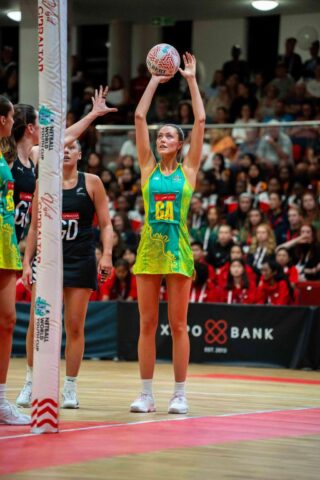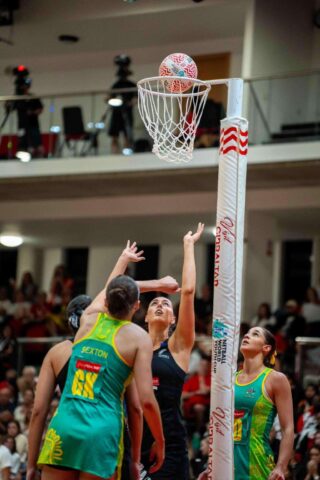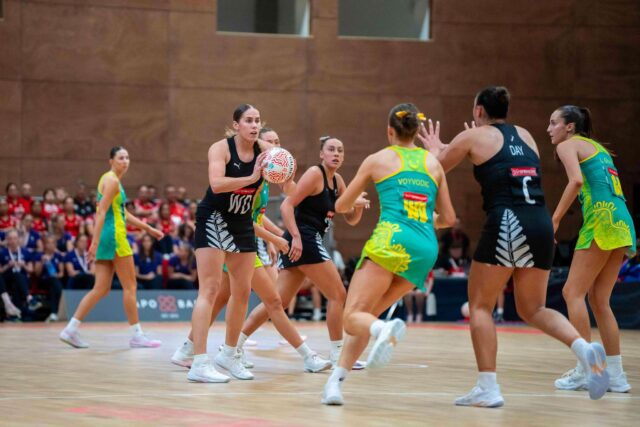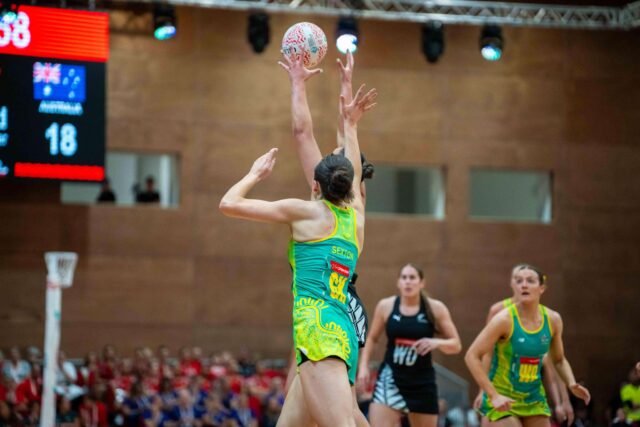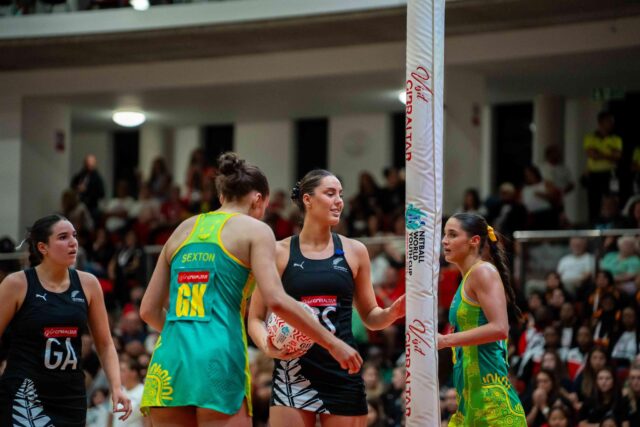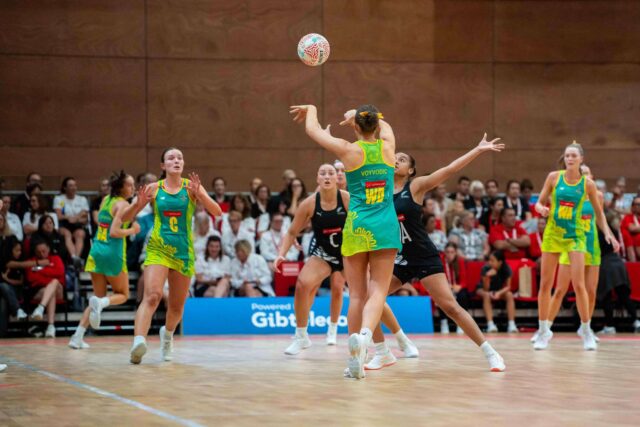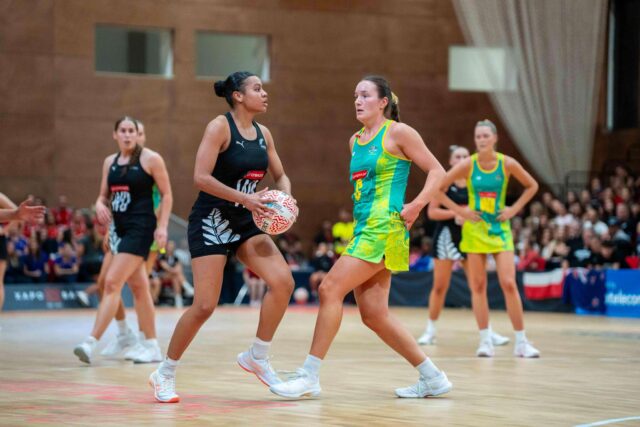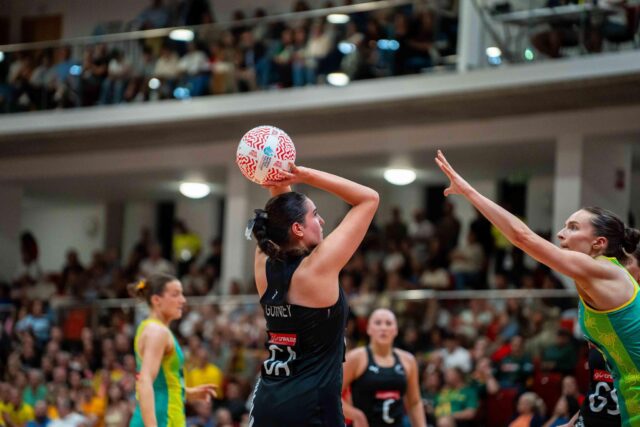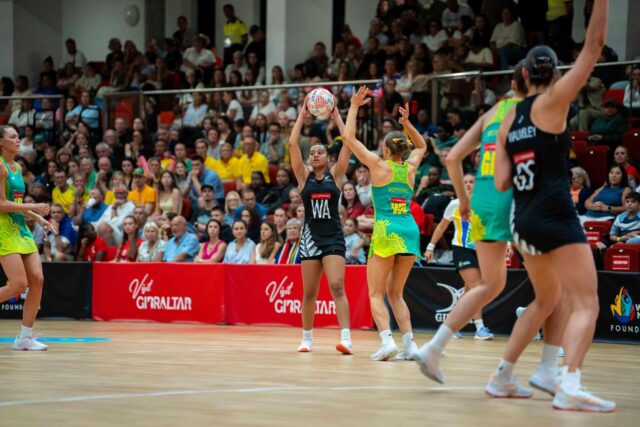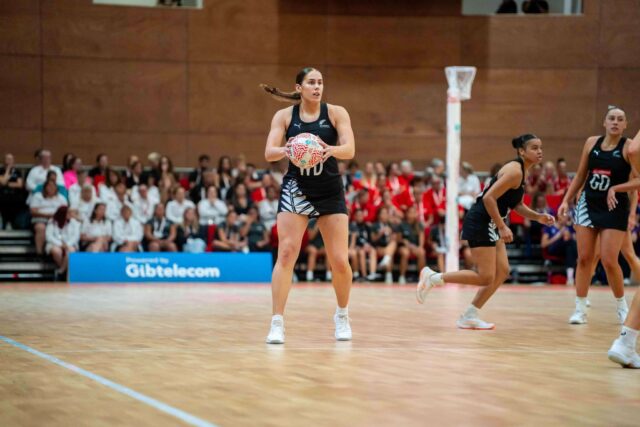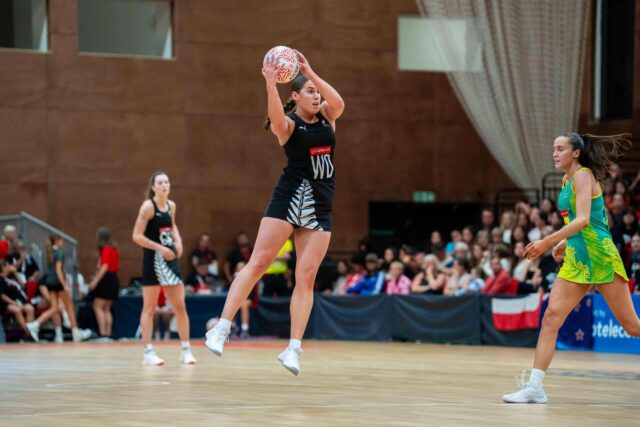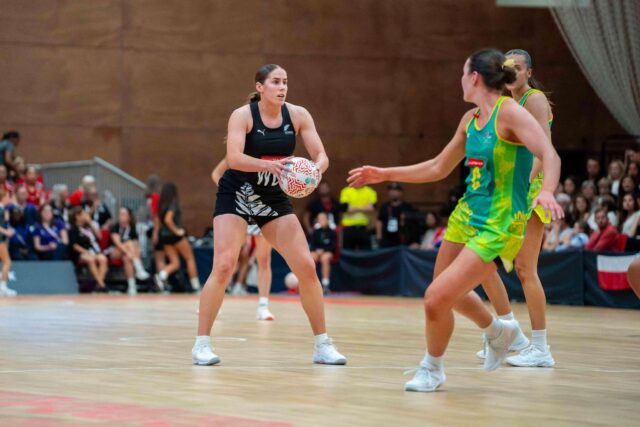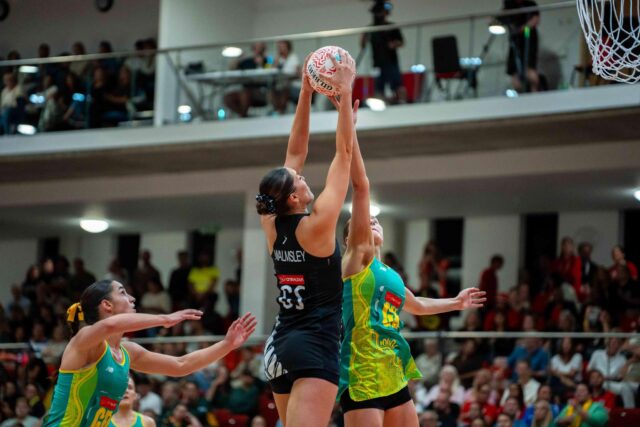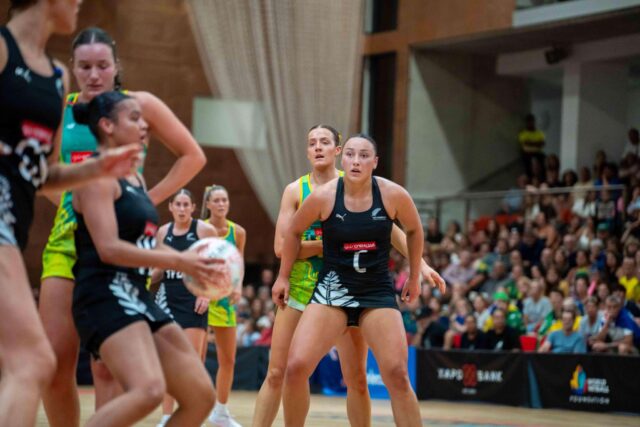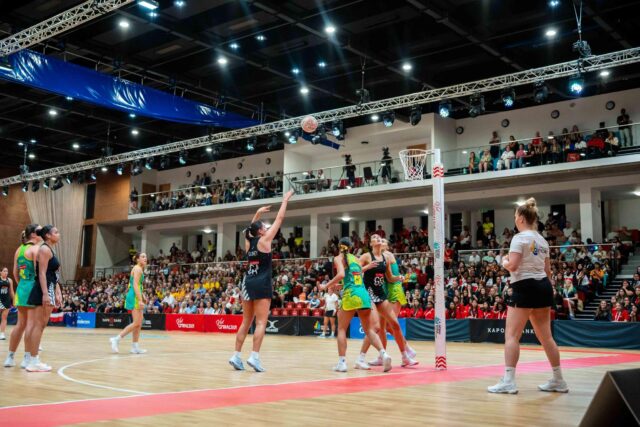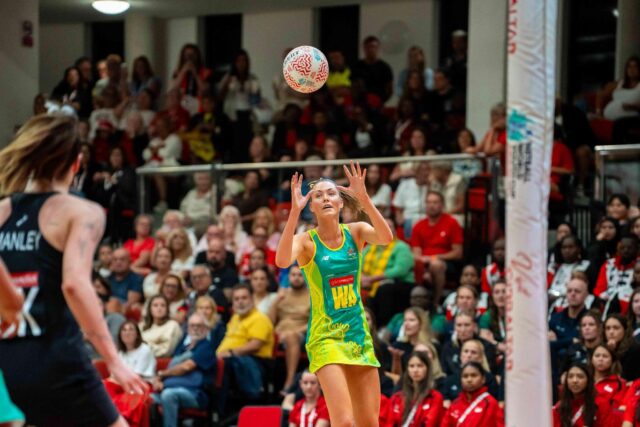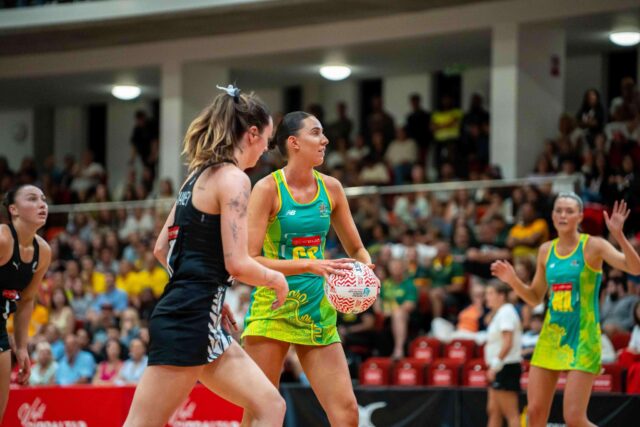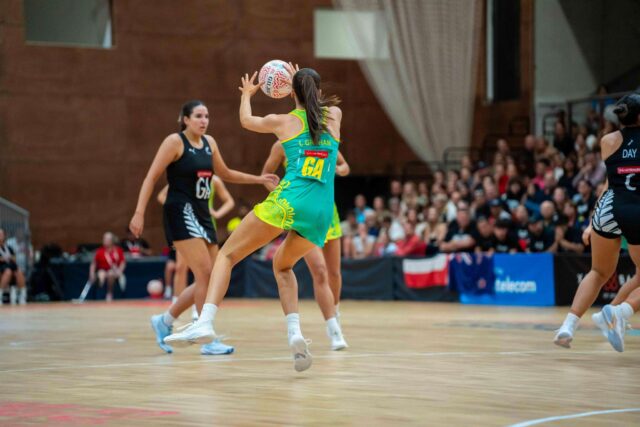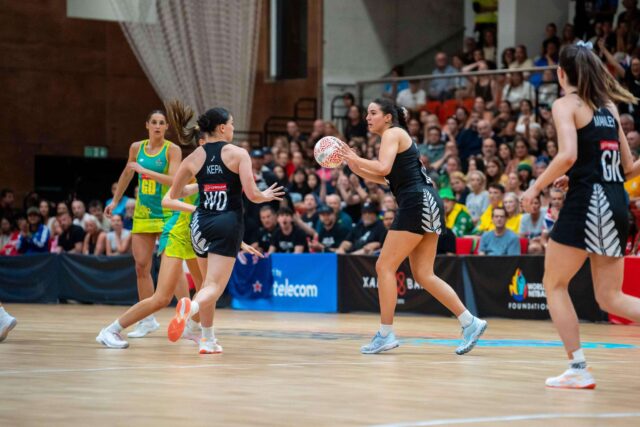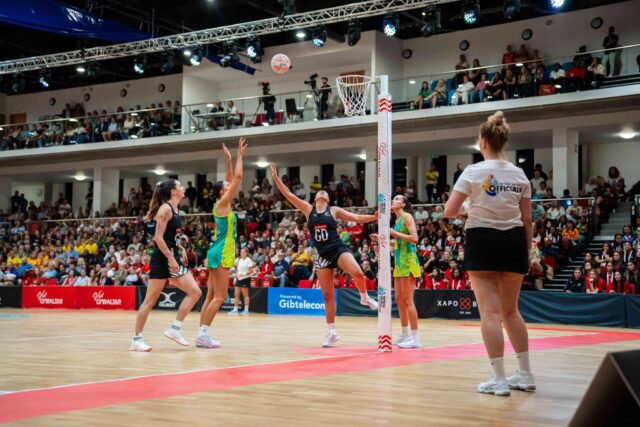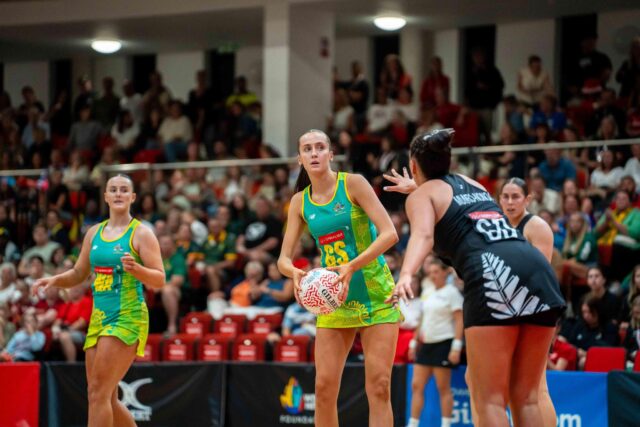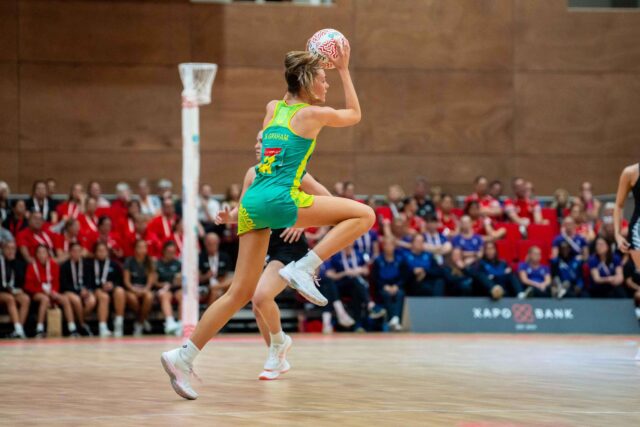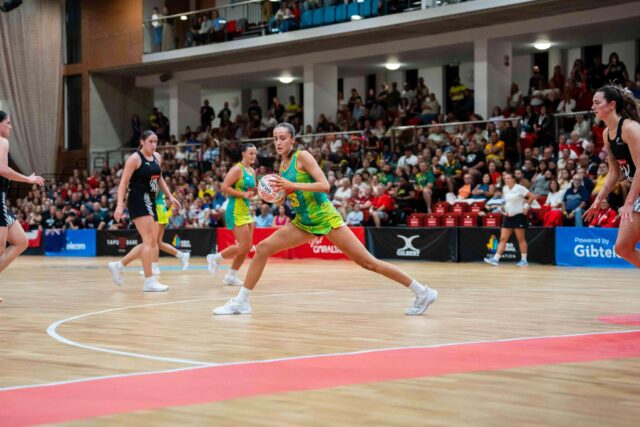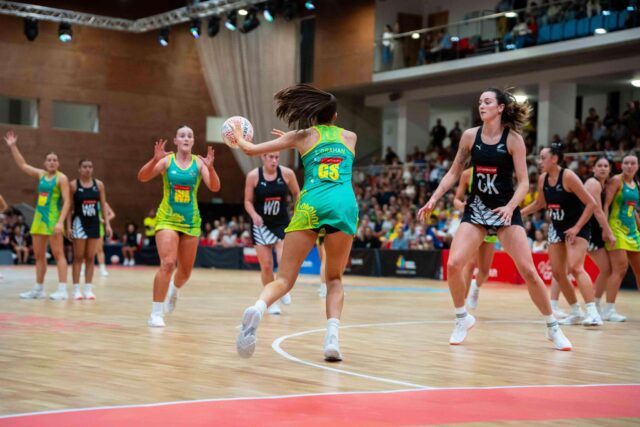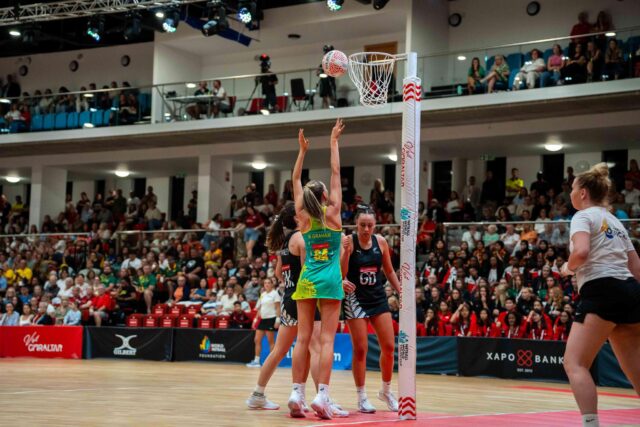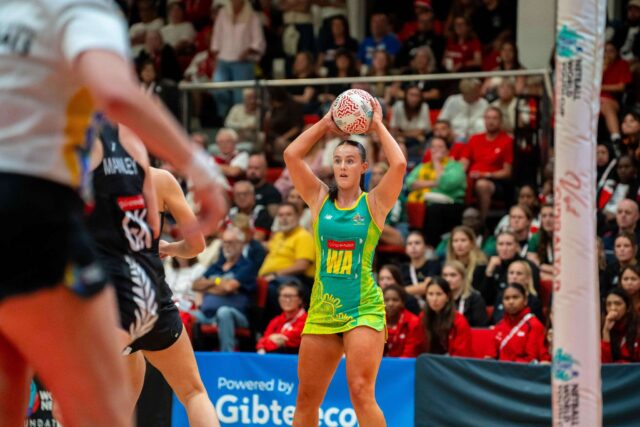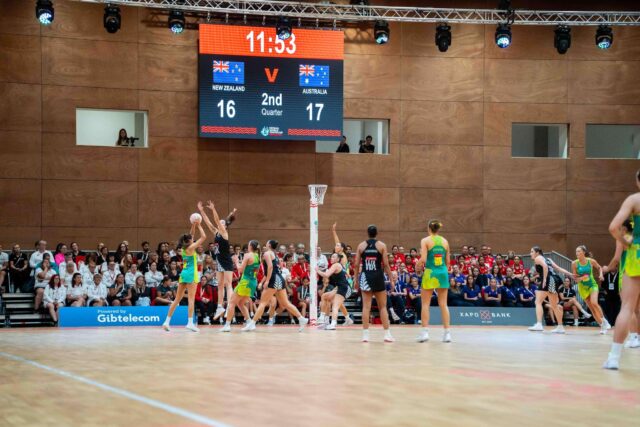NWYC2025 - Australia Netball World Youth Cup Champions
Australia lifted the Netball World Youth Cup after defeating defending champions New Zealand. In a tightly contested and physical match, Australia came from five goals down early to turn the tables and pave their pathway to victory, denying New Zealand a historic third consecutive title.
Australia had cruised through the group stages and knockout phase, dispatching South Africa in the semi-finals with an emphatic victory. New Zealand entered the final knowing that a win would secure a historic three-peat, having previously won consecutive tournaments. The pressure on New Zealand was immense—they had played one fewer match than Australia due to Zambia’s withdrawal and had faced opponents including Gibraltar in the group stage.
Australia, meanwhile, had shown confidence on court, with strong performances and powerplays in the semi-finals setting them up as favourites for the final.
A full-capacity Europa Sports Hall welcomed the finalists on a stormy Sunday evening, with thousands more watching online via Netball Pass live stream. The Netball World Youth Cup 2025—the first, and likely only, world cup to be hosted on the Rock—had already drawn millions of viewers over its nine days, with some matches receiving over 400,000 views through YouTube and other official channels. The tournament showcased the world’s top young netball talent, including over 30 players currently in super leagues. While crowd numbers had varied during the tournament, key matches like this one saw the venue filled to capacity, with Gibraltar netball fans seizing the opportunity to watch two of the top sides in the world contest the title.
New Zealand started the match with patience, facing a disciplined and strong Australian defence. They scored the first two goals, taking an early 2-0 lead. Australia had to wait for their opening goal as New Zealand extended their advantage to 4-1, and then 5-1 within the first three minutes, thanks to steals in the midcourt. This marked the first time Australia had been behind on the scoreboard throughout the competition.
New Zealand continued to dominate early, moving to 6-1, but Australia gradually picked up their pace. By five minutes in, New Zealand led 8-3 before Australia added their fourth goal. The Australians began clawing back, closing the gap to 9-6. Both sides, well-acquainted with each other’s styles, traded goals, with Wilkinson bringing the score to 9-8 before Australia levelled at 9-9.
The contest intensified, with both teams countering point for point. New Zealand held a one-goal lead with 46 seconds left in the first quarter, but Graham calmly levelled for Australia. A subsequent turnover allowed Australia to score again, ending the first quarter 15-14 in their favour, having come back from a five-goal deficit. Australia added another to extend their lead to two goals early in the second quarter.
The second quarter saw both sides under immense pressure, with any lapse potentially shifting momentum. A physical contest kept umpires alert, ensuring play remained fair and uninterrupted. Australia capitalised on a New Zealand error to score consecutive goals, stretching their lead to 24-21—the largest margin so far. New Zealand responded immediately, narrowing the gap to 24-23. After a New Zealand penalty, Australia retained possession to finish the half 27-25, despite New Zealand clawing back to level at 25-25 earlier in the quarter.
Australia dominated early in the third quarter, taking a five-goal lead. A penalty against New Zealand allowed Australia to extend it to six goals, equalling New Zealand’s largest early lead. Australia stretched it further to seven, moving 33-26 ahead and applying intense pressure on their opponents. Clinical finishing from Wausley and composure from the Australian shooters saw the margin rise to 38-31, and then 41-32 with seven minutes remaining. Patient buildup and intelligent use of space delayed New Zealand’s return to attack, and Australia closed the quarter 47-34, effectively extinguishing New Zealand’s hopes of a comeback.
Having only ever lost to New Zealand in World Youth Cup history, Australia was heading toward their fifth gold medal. They had ironically qualified for this edition after finishing second in 2017, the last tournament New Zealand had won. With the 2021 edition cancelled due to the COVID-19 pandemic, Australia had waited long to turn the tables on their rivals.
Clinical finishing from Graham and Sexton, combined with disciplined defence, saw Australia open a 52-39 lead in the final quarter. New Zealand fought back to 54-42, but Australia maintained control, steadily closing out the match.
Australia secured a 63-48 victory over New Zealand, claiming their first World Youth Cup title on Gibraltar soil. The tournament concluded after nine days of enthralling, high-quality netball, with Australia stamping their mark against the defending champions in front of a passionate Gibraltar home crowd.
All images courtesy NWYC2025
